
In the final part of her Pharma Commerce video interview, Jen Butler, CCO at Pleio, emphasizes that as digital tools become central to patient support, there is value to balancing technology with empathy.
Nicholas Saraceno is Editor of Pharmaceutical Commerce. He can be reached at [email protected].

In the final part of her Pharma Commerce video interview, Jen Butler, CCO at Pleio, emphasizes that as digital tools become central to patient support, there is value to balancing technology with empathy.
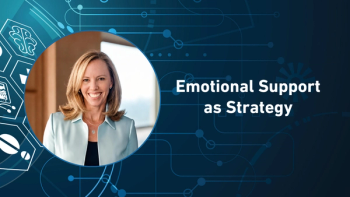
In the third part of her Pharma Commerce video interview, Jen Butler, CCO at Pleio, argues that addressing patients’ emotional barriers is essential to maximizing ROI, improving adherence, and ensuring that existing support programs truly reach those who need them.
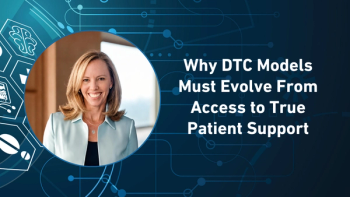
In the second part of her Pharma Commerce video interview, Jen Butler, CCO of Pleio, warns that without stronger education, communication, and pharmacist involvement, digital engagement risks becoming purely transactional.

This episode of Pharma Pulse discusses Novartis’ $12 billion acquisition of Avidity Biosciences to expand its RNA therapeutics portfolio, and President Trump’s proposed 10% tariff increase on Canadian imports that could disrupt pharma supply chains.

At LogiPharma USA, industry leaders from Tive, McKesson, and the broader healthcare logistics community discussed the sector’s transition from passive monitoring to real-time control, the growing influence of advanced therapies, and the importance of diversity and innovation in shaping the future of pharma supply chains.

The move adds new tension to US-Canada trade relations under the USMCA and raises questions about pending pharmaceutical import policies.

This episode of Pharma Pulse discusses new research linking cholesterol imbalance in obesity to higher depression risk, Eli Lilly’s acquisition of Aderum Biotechnologies to strengthen its neuroscience pipeline, and Cambrex’s $120 million investment to boost US. API manufacturing capacity.

The CDMO’s latest investment will boost capacity at its Charles City, IA facility by 40%, underscoring Cambrex’s focus on reshoring drug manufacturing, advancing peptide and small molecule production, and supporting the long-term stability of the US pharma supply chain.
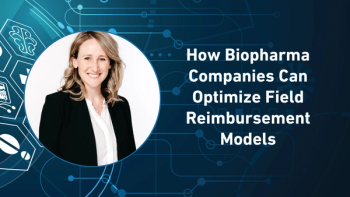
In the final part of her Pharma Commerce video interview, Megan Wetzel, VP, product, access & affordability at CoverMyMeds, shares how the right field reimbursement model structure ensures field teams have the insights and tools they need to overcome coverage barriers and accelerate patient access to therapy.

This episode of Pharma Pulse covers Alkermes’ acquisition of Avadel Pharmaceuticals to expand its portfolio, BioNTech’s public exchange offer for CureVac to strengthen its mRNA pipeline, and a new report revealing how US medical device manufacturers are adopting digital-first models to boost compliance and patient engagement.

In the third part of her Pharma Commerce video interview, Megan Wetzel, VP, product, access & affordability at CoverMyMeds, explains that by educating provider offices on payer requirements, prior authorizations, and denial trends, field reimbursement managers help streamline complex reimbursement processes and reduce treatment delays.

The acquisition brings together two leaders in mRNA innovation, strengthening BioNTech’s oncology strategy and expanding its R&D and commercialization capabilities.

This episode of Pharma Pulse covers MJH Life Sciences’ acquisition of BPD Healthcare to deepen its reach into hospitals and health systems, investor reaction to Novo Nordisk’s recent board changes, and Mark Cuban’s latest partnership expanding his Cost Plus Drugs platform to disrupt traditional pharmacy pricing models.
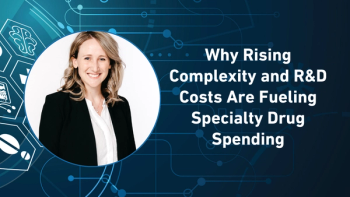
In the second part of her Pharma Commerce video interview Megan Wetzel, VP, product, access & affordability at CoverMyMeds, describes how high development costs, personalized treatment models, and an aging population are intensifying the imbalance.

At HLTH 2025, the entrepreneur announced a collaboration between Cost Plus Drugs and President Trump’s TrumpRx platform aimed at improving transparency, reducing drug costs, and reshaping how Americans access their prescriptions.

This episode of Pharma Pulse discusses new data showing a post-Dobbs surge in telehealth medication abortion requests, the FDA’s expedited review of Tzield under its new National Priority Voucher Program, and the launch of a dedicated biopharma air logistics network by Frontier Scientific Solutions and ATSG.

Administrative hurdles and emotional isolation are driving therapy abandonment and worsening outcomes—Megan Wetzel of CoverMyMeds and Jen Butler of Pleio say the solution lies in combining streamlined access with stronger human connection.

The new partnership aims to transform cold chain logistics for life sciences, creating a connected air transport network designed to ensure temperature integrity, regulatory compliance, and faster delivery of critical therapies.
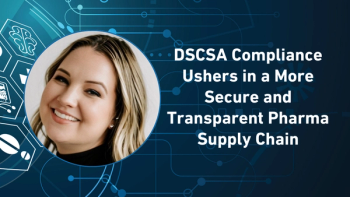
Kala Shankle, JD, HDA’s vice president of regulatory affairs, shares that as DSCSA traceability requirements take full effect, distributors and trading partners are preparing for long-term gains in supply chain security, recall efficiency, and counterfeit prevention.

This episode of Pharma Pulse covers Amazon and WeightWatchers’ partnership to deliver FDA-approved weight-loss medications, Merck’s new biomanufacturing center of excellence in Virginia, and the FDA’s first-ever approval of a TSLP-targeting biologic, Tezspire, for chronic rhinosinusitis with nasal polyps.

The company’s new 400,000-square-foot facility in Elkton will boost small molecule manufacturing, create hundreds of jobs, and strengthen US innovation and supply chain resilience.
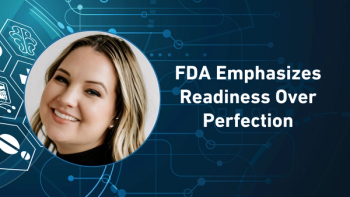
Kala Shankle, JD, HDA’s vice president of regulatory affairs, describes how FDA officials are signaling a balanced enforcement approach when it comes to DSCSA enforcement, expecting compliance efforts and documentation, but also recognizing that perfection will take time.

This episode of Pharma Pulse discusses new research linking severe COVID-19 to increased stroke risk among asthma patients, a KFF poll showing divided parental support for vaccine-related agendas, and US News & World Report’s 2026 list of top Medicare Advantage and Part D plan providers.

Aetna, Devoted Health, and UnitedHealth headline the list best Medicare Advantage insurers for next year, while Centene and Humana lead the pack in Part D prescription drug coverage.
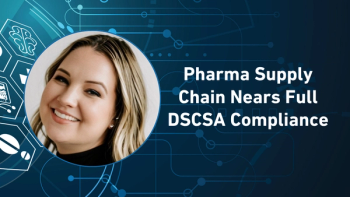
Kala Shankle, JD, HDA’s vice president of regulatory affairs, details that after a year of steady progress, manufacturers and distributors report over 97% data accuracy under DSCSA traceability requirements, marking a major milestone in supply chain interoperability and signaling confidence ahead of the November compliance deadline.

The collaboration demonstrates that ocean freight can safely transport temperature-sensitive medicines, offering the pharma industry a cost-effective, sustainable alternative to air cargo.

This episode of Pharma Pulse discusses new research revealing persistent disparities in women’s cancer outcomes, record-high physician pay amid steady productivity, and AstraZeneca’s major Texas expansion to double production of its hyperkalemia treatment, Lokelma.
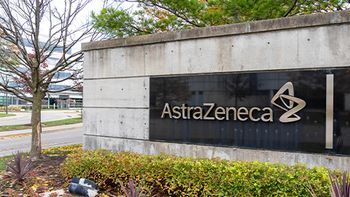
The $445 million expansion of AstraZeneca’s Coppelsite will boost global production capacity for Lokelma, enhance local job growth, and strengthen the company’s US manufacturing footprint amid industry-wide onshoring trends.
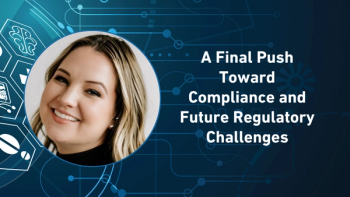
Kala Shankle, JD, HDA’s vice president of regulatory affairs, describes how at this year’s seminar, attendees emphasized pragmatic approaches to achieving full compliance while anticipating upcoming FDA rules that could reshape wholesale and 3PL licensure standards across the pharma supply chain.

This episode of Pharma Pulse covers the FDA’s approval of a rapid one-minute HIV self-test, the US government’s decision to delay tariffs on pharmaceutical exports from Singapore, and CVS Pharmacy’s acquisition of more than 600 Rite Aid stores across three states to expand its community health footprint.